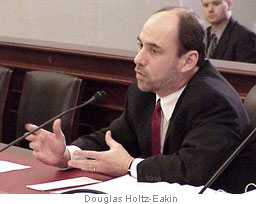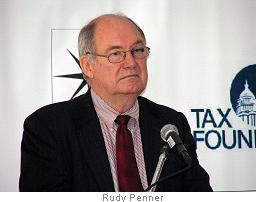I have been a huge fan of the Congressional Budget Office since it opened its doors more than three decades ago. It’s a critically important part of the congressional budget process and has had a big positive impact on the outcome of many, many policy debates.
Many of CBO’s biggest successes have been hidden from view, especially when it’s assessments have stopped expensive ideas that otherwise might have been debated from moving forward or from being considered in their original forms. In other cases — especially when it determined that Bill Clinton’s health care reform plan should be counted on-budget — its impact has been widely noted. Indeed, CBO’s assessment of the Clinton plan is often credited with it’s demise.
But as this report from Brian Faler at Bloomberg points out, especially when it comes to big policy changes like health care, CBO’s estimates are often not just wrong, but by hundreds of billions of dollars wildy inaccurate.
Faler’s article is most interesting because the only people he quotes are current and former CBO directors, and all speak very candidly about the extreme difficulty in doing what the organization is asked to do when it comes to major policy changes like health care.
 For example, former Director Douglas Holtz-Eakin is quoted as saying,
For example, former Director Douglas Holtz-Eakin is quoted as saying,
“…it’s hard to anticipate the cost-cutting implications that come out of the private sector — they’re fundamentally imaginative, they have a lot on the line and they do better than you would guess sometimes.”
Note Doug’s use of the word “guess.”
 Current Director Doug Elmendorf says CBO’s cost estimates
Current Director Doug Elmendorf says CBO’s cost estimates
“often depend on projections of economic or political developments that are very hard to foresee.”
In other words, they’re may be guessing.
 And Former Director Rudy Penner says,
And Former Director Rudy Penner says,
“In an ideal world Congress would recognize the uncertainty around these numbers and a good part of the debate would be, ‘What will we do if the cost of this turns out to be higher than CBO estimated?”
Or lower.
In other words, someone should always say up front that CBO’s numbers should not be taken as gospel.
- Bulenox: Get 45% to 91% OFF ... Use Discount Code: UNO
- Risk Our Money Not Yours | Get 50% to 90% OFF ... Use Discount Code: MMBVBKSM
Disclaimer: This page contains affiliate links. If you choose to make a purchase after clicking a link, we may receive a commission at no additional cost to you. Thank you for your support!



Leave a Reply